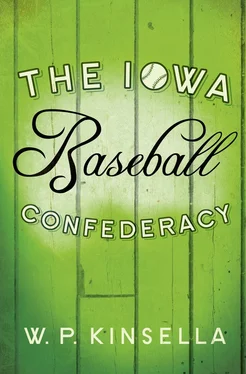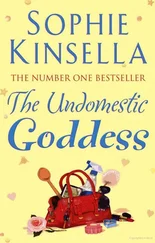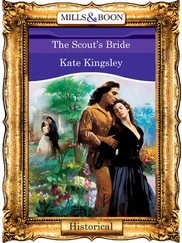1 ...6 7 8 10 11 12 ...16 I am going to reproduce another letter – the final one my father wrote to Frank Luther Mott. There was an exchange of eleven letters between them, with my father’s letters becoming more detailed, more demanding, more desperate, while Mr. Mott’s letters became shorter, more curt, and finally almost condescending.
Dear Mr. Mott:
After all our correspondence I am still unable to understand why you do not remember the Iowa Baseball Confederacy. I realize it has been a long time since 1902; perhaps if I refresh your memory. It was the evening of January 16, 1902, when you and Mr. Ansley met at Donnelly’s Bar in Iowa City.
‘Some of these young fellows who play in the Sunday Leagues are awfully good,’ you said to Mr. Ansley.
‘We should get them all together and form a semiprofessional league,’ Mr. Ansley replied.
‘I’d be willing to do some of the work if you would,’ you said.
‘It sounds like a good idea,’ said Clarke Ansley. ‘There’s that team from out around Blue Cut, call themselves the Useless Nine; they haven’t lost a game for two seasons. I was up to Chicago in September and some of those boys could play for either the Cubs or the White Sox.’
‘I know a couple of other people who would be interested,’ you said. ‘Why don’t we arrange an organizational meeting for next Wednesday?’
There you are, Mr. Mott – that was the way the Iowa Baseball Confederacy was born. Surely that must jog your memory.
Waiting anxiously to hear from you,
Yours truly,
Matthew Clarke
What follows is Mr. Mott’s final letter to my father.
Dear Mr. Clarke:
Although as you say it has been a number of years since 1902 and I have indeed spent considerably more years than you on this planet, I assure you I am not senile, demented, forgetful, or a liar. I resent the implications of your last correspondence. Once and for all, I know nothing of an organization called the Iowa Baseball Confederacy. I had nothing to do with the conception of such a league. To my knowledge, and my knowledge is considerable, such a league never existed. And on the off chance that it did exist in some remote part of the state, I certainly had nothing whatever to do with it, and neither did my friend Clarke Fisher Ansley.
I will thank you not to write to me again.
Sincerely,
Frank Luther Mott
I quote from A Short History of the Iowa Baseball Confederacy :
The Iowa Baseball Confederacy consisted of six teams, representing, with the exception of Iowa City and Big Inning, rural districts rather than actual towns, although Frank Pierce did have a post office in a farmhouse, as did Husk. Blue Cut and Shoo Fly were loose geographic areas defined by the districts from which their baseball teams drew players. Shoo Fly was in the general region now known as Lone Tree, while Blue Cut was in and around the town of Anamosa .
The league standings, as of July 4, 1908 – the time at which, for reasons as yet undetermined, the Iowa Baseball Confederacy ceased to exist forever – were as follows :
| Team |
Won |
Lost |
Pct. |
G.B. |
| Big Inning |
32 |
16 |
.667 |
- |
| Blue Cut |
27 |
21 |
.562 |
5 |
| Shoo Fly |
26 |
22 |
.541 |
6 |
| Husk |
22 |
26 |
.458 |
10 |
| Frank Pierce |
21 |
27 |
.436 |
11 |
| Iowa City |
16 |
32 |
.333 |
16 |
‘Something happened,’ my father would say, always making the same palms-up gesture of incomprehension. ‘Something happened on July 4, 1908, that brought history crashing down on the Iowa Baseball Confederacy. Something happened that erased the league from human memory, changed the history of Iowa, of the U.S.A., maybe even the world. I’d give anything to know what it was. I don’t know if there was something in the air, or if a mysterious hand reached down out of the clouds, and patted tens of thousands of heads, wiping minds and memories until they were clear and shiny and blank as a wall newly covered in white enamel. Or maybe some phantom surgeon went into all those brains with long-handled magic scissors and snipped out all the memories of the Iowa Baseball Confederacy.’
My own knowledge also ends as of July 3, 1908. The day before a scheduled game between the Chicago Cubs and the Iowa Baseball Confederacy All-Stars.
I have spent years of my life studying the Iowa City Daily Citizen and the Chicago Tribune , searching for some mention of the game or some mention that something unusual happened in the baseball world that summer. I know a great deal about the Chicago Cubs of 1908 and have written to their heirs and survivors – but I have drawn a blank.
2 Contents Title Page The Iowa Baseball Confederacy BY W. P. KINSELLA Copyright The Friday Project An imprint of HarperCollins Publishers Ltd 77–85 Fulham Palace Road Hammersmith, London W6 8JB www.harpercollins.co.uk This ebook first published in Great Britain by HarperCollins Publishers Ltd 2014 Copyright © W. P. Kinsella 1986 Cover design © HarperCollins Publishers Ltd 2014 Portions of this novel appeared in a slightly different form in Descant, Saturday Night, New Quarterly, Arete, and Buzzard’s Luck, and in the short story collections The Thrill of the Grass (Penguin Books, 1984). Several excerpts were broadcast on CBC Radio and the MacNiel/Lehrer NewsHour . W. P. Kinsella asserts the moral right to be identified as the author of this work. FIRST EDITION A catalogue copy of this book is available from the British Library. This novel is entirely a work of fiction. The names, characters and incidents portrayed in it are the work of the author’s imagination. Any resemblance to actual persons, living or dead, events or localities is entirely coincidental. All rights reserved under International and Pan-American Copyright Conventions. By payment of the required fees, you have been granted the non-exclusive, non-transferable right to access and read the text of this e-book on screen. No part of this text may be reproduced, transmitted, downloaded, decompiled, reverse engineered, or stored in or introduced into any information storage and retrieval system, in any form or by any means, whether electronic or mechanical, now known or hereinafter invented, without the express written permission of HarperCollins. Source ISBN: 9780007497508 Ebook Edition © July 2014 ISBN: 9780007591299 Version: 2014-08-07 I: The Warm-up 1 2 3 4 5 II: The Game 6 7 8 9 10 11 12 13 III: The Post-game Show 14 Also by the W.P. Kinsella About the Publisher
My sister was born in 1944, and was, in some prophetic manner, named Enola Gay, a full year before the bomber droned over Hiroshima, its womb bursting with destruction. I was born a year after my sister and named Gideon John – Gideon, because my father, like the biblical Gideon, played the trumpet. He had a fascination for what he described as ‘soulful music.’ When he played, the instrument often seemed only a shadow of itself. The muted notes reflected his moods, burbling like water when he was happy, ticking like a clock when he felt reflective, wailing like an animal in pain when he was sad or frustrated, as he often was. Deep in the night I’d hear him in his study, or in the living room, the music soft and sad as angels. I’d shiver and cover my head with my pillow, for I’d know that his playing usually, in my early years, predicted my mother’s leaving, and later it meant his frustrations were building to unbearable proportions. On the occasions when my mother did leave us, he would climb to the second floor, pull down the old spring ladder that spent its life nestled against the hall ceiling, and climb to the widow’s walk on top of the house. There he would release all his anger and hurt and disappointment, and I would cry softly, as much for him as for myself, while he hurled the notes toward the blue-and-silver night sky.
Читать дальше












